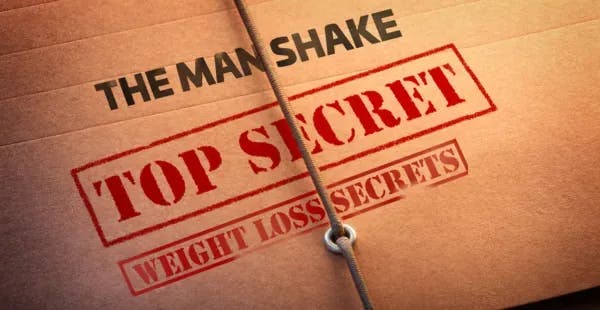The secret weapon for weight loss.
•Weight loss

Share
When it comes to weight loss, there is no shortage of information available. Almost anywhere you go these days, you’re likely to be assaulted with an advertisement for the latest diet, exercise equipment, fitness app, or workout craze.
The easiest of these often turn out to be mostly gimmicks, promising results that are too good to be true. At the other end of the spectrum are overly complicated workout schedules and meal plans that require a serious commitment of time and energy just to keep up with the instructions.
Fortunately, there are several proven, longstanding principles that consistently deliver results. Not always as flashy or high-profile as their gimmicky counterparts, these time-tested keys are like “secret weapons” of fitness. Perhaps the most critical of these weapons for simple, reliable weight loss is a high-protein diet.
Exercise is certainly an important component of reaching your fitness goals, but in most cases, no amount of exercise can overcome a routinely poor diet. While there is no one-size-fits-all diet that causes every person to shed pounds, science has consistently demonstrated that protein is the key that substantially increases a person’s odds of losing weight.
Four Weight-Loss Benefits of a High-Protein Diet
One of the best things about this ultimate secret weapon is that it doesn’t necessarily require you to give anything up. Unlike restrictive diets, which focus on what you can’t eat, the focus here is more on increasing your intake of protein-rich foods. This incredible macronutrient delivers a wide array of powerful weight-blasting benefits.
1. It helps you stay fuller for longer
If you’ve ever been on a restrictive diet, you know how quickly hunger can sabotage your best intentions. Feeling hungry makes it impossible to think about anything other than food, and food is the very thing you’re trying not to think about!
In study after study, researchers have confirmed that eating foods high in protein causes people to feel full sooner, allows them to go longer without eating or snacking, and even causes them to eat less during their next meals. Furthermore, when you’re not hungry, not only do you tend to eat less and less often, but you also tend to think with your brain rather than your stomach and are more apt to choose healthier meals and snacks. This in turn reduces your overall caloric intake even further, helping you see weight loss sooner.

2. It increases the thermic effect of food
The amount of energy it takes your body to break down, utilize and store the food you eat is the food’s “thermic effect.” Of all the macronutrients, protein has the highest thermic effect, meaning that it is the hardest for your body to break down. As a result, you burn more calories as part of the digestion process, which keeps your metabolic furnace burning longer.
Fun fact: This slower break-down rate is the reason that high-protein foods keep you feeling full for longer times.

3. It helps preserve lean muscle mass
Have you ever seen improvements at the gym and positive changes in your body, but not seen any progress on the scale? This is because lean muscle weighs more than fat (though a pound of muscle takes up much less space than a pound of fat).
Lean muscle also requires much more upkeep on your body’s part than fat does. It almost seems unfair: when your body composition has a higher percentage of fat, you need fewer calories to maintain the fat and need to take in even fewer net calories if you hope to lose that. By contrast, when your body composition has a higher percentage of lean muscle, you use more calories just to maintain that muscle. In other words, people with more lean muscle can eat more without gaining weight: The muscle is burning calories around the clock just by existing.
You can see that gaining and maintaining lean muscle mass is one of the simplest and most reliable ways to lose weight—protein is critical for both.

4. It makes it more difficult to store fat
High-protein foods pack loads of health benefits, but that doesn’t mean you can eat an unlimited amount of these foods — at least, not if you’re hoping to lose weight. Any time that you take in more calories than you burn, your body attempts to store the excess calories as fat. Even though high-protein foods aren’t immune to this rule, these foods still have a few advantages.
- They tend to have fewer calories to start with than their high-carb or high-fat counterparts, which means fewer calories to burn off.
- Protein makes you feel full sooner so you’re less likely to consume a huge excess of these foods.
- Your body uses more calories just to metabolize the protein, which means fewer excess calories left over to store. Finally, just as your body struggles to break down and metabolize protein, it also struggles to store it as fat. High-protein foods are much less likely to end up as body fat than other macronutrients such as fat or carbohydrates.

How Much Protein Do You Need?
Most nutrition experts suggest that each day, adults should consume between 1.6 and 2.2 grams of protein for every kilogram of body weight. If you are an athlete or participating in a very vigorous exercise regimen, you will likely need up to 3.4 grams per kilogram of body weight to see weight loss benefits.
If you’re trying to lose weight, don’t forget about the secret weapon to simple, steady weight loss: protein! Check out The Man Shake for dozens of convenient, delicious ways to incorporate more high-quality protein into your daily routine.







